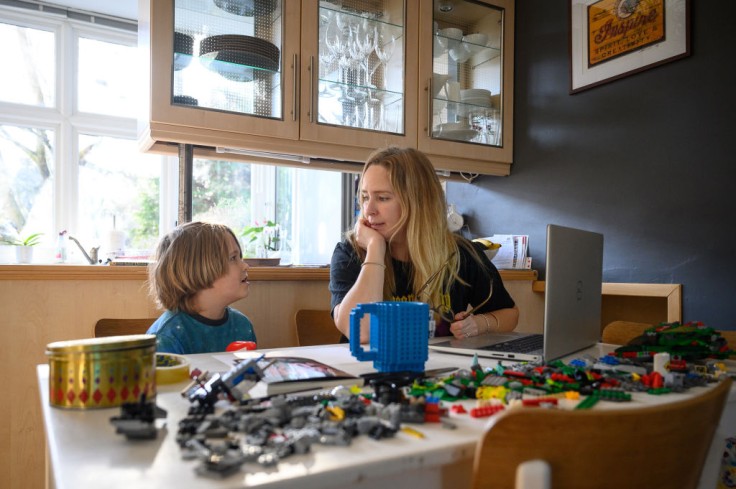
Because it offers more space to find balance, hybrid work can give parents better management of their career and personal responsibilities.
After years of predicting the future of work, the 2023 KinderCare Parent Confidence Report revealed that hybrid work is here to stay.
Forty-one percent of parents, a five percent increase from last year, express that hybrid work is their ideal work scenario. Thirty-seven percent are already working in a hybrid environment, while a higher percentage of 39 see themselves working in a hybrid environment a year from now.
A nine percent increase of parents (68%) are more involved in their children's lives because their current work schedule is much more flexible. This result reflects that parents are capitalizing on work flexibility to be more present with their children.
Sixty-seven percent, a two percent increase from last year, stated that their parenting confidence is boosted when they have enough time spent with their kids.
What is hybrid work, why do parents want it?
Hybrid work is a framework that enables employees to do their work partly in person at the office and partially remotely. The core of this hybrid concept is to provide employees the freedom to work in a way that makes sense to them, Yarooms explained.
Employees can choose where they feel most comfortable working and even when. They can opt for traditional workspaces like offices or homes or non-traditional ones like coffee shops and other public spaces. They can also opt for traditional working hours, the usual eight to five, or non-traditional hours like the graveyard shift. Thus, hybrid work is frequently blended with the flexible work concept.
For working parents, this kind of work can provide "an oasis of calm" as it allows them to craft their working schedules around their family and children's schedules, school homework, and extracurricular. The beauty of this framework is that parents can adjust their work accordingly, still get the job done, and be at peace knowing that, for the first time ever, it is not their family or their kids that need to adjust for their work.
More so, dads and moms can take their children to school, pick them up, take them to ice cream, and still be able to make it to work on time.
"Hybrid work allows me to see my daughter grow - for which I am grateful every day. Working from home gave me the freedom to combine my leadership role with the one of being the mother of a 2-year-old child. I feel I have the chance to mix some days at home with my daughter (seeing how she grows and learns) with the time in the office. This gives me the energy to deliver," Egle Palsiene, mother, engineering Director in Vilnius, and working hybrid for Mambu.
Operating without work permits
While the future of work is changing and parents' confidence is boosted high, the new study showed that one thing remains - working parents continue to knock on the door of their employers and the government seeking and expecting more child care support.
Child care affordability and accessibility are still burdens working parents carry mentally and financially, Businesswire reported.
Six out of 10 working parents expressed that there is still a "disconnect" between the support they need and the benefits their employer provides. Thus, they are rethinking their career journey.
Seventy-four percent have already and are considering switching jobs, while 73 percent have already and are considering taking on a less demanding job to have more time for the children, 70% have already and are considering scaling back at work, 62 percent have already and are considering to take a career break while 59%, unfortunately, have already and are considering to stay at a job where they are unsatisfied.
Related Article : Hybrid Baby Sitters: Working Parents Hire More Flexible Baby Sitters to Respond to Their Schedules and Budget